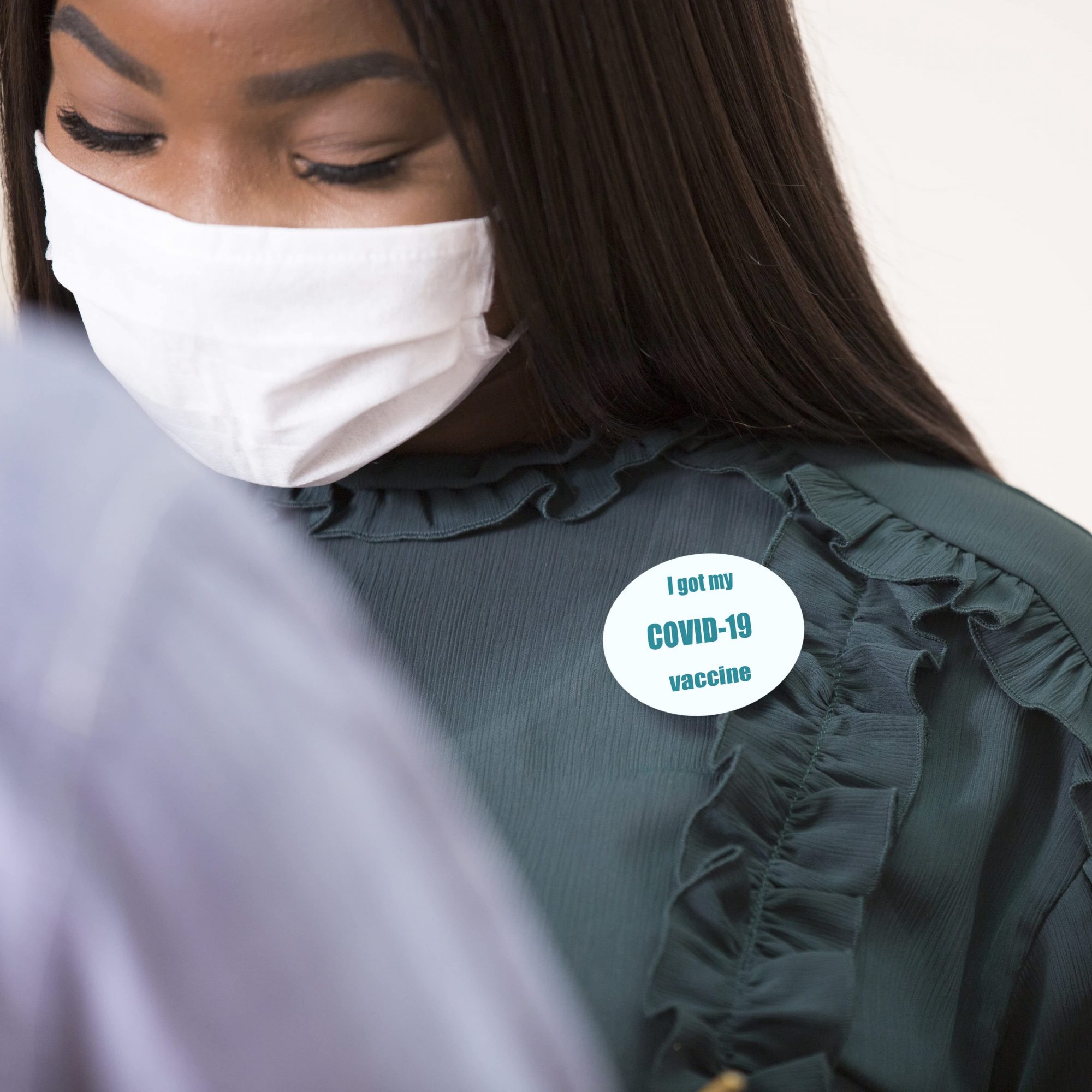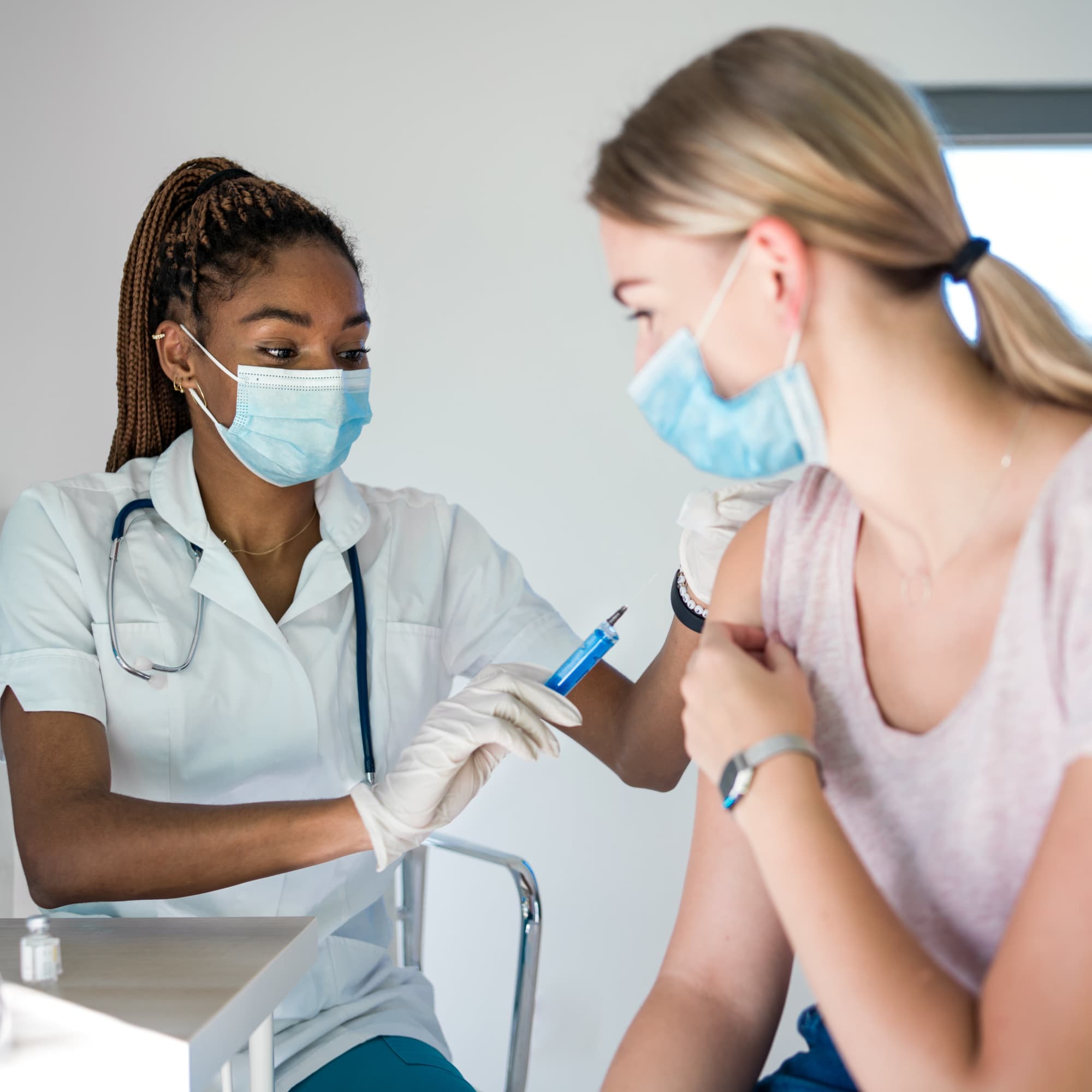
- POPSUGAR Australia
- Fitness
- Young People May Have More Side Effects From the COVID Vaccine — Doctors Explain Why
Young People May Have More Side Effects From the COVID Vaccine — Doctors Explain Why

Not everyone who gets vaccinated for COVID-19 has side effects. And, when people do have short-term side effects such as injection-site reactions, fatigue, fever, headache, and muscle aches and pain, they tend to happen more frequently after the second dose of the mRNA vaccines – from Pfizer-BioNTech and Moderna – currently approved for emergency use by the FDA as opposed to the first. Note: the single-dose Johnson & Johnson vaccine was approved for emergency use in the United States on Feb. 27, and mild to moderate side effects reported in clinical trials were similar, lasting on average one to two days.
Antonio Crespo, MD, an infectious disease expert at Orlando Health, told POPSUGAR that the body may react “more violently” to the second dose of Pfizer’s or Moderna’s shot, because you’re already primed with that first dose and beginning to make antibodies against the virus.
Purvi Parikh, MD, an immunologist with Allergy & Asthma Network who is also a co-investigator on COVID-19 vaccine trials at New York University, compared this reaction to meeting someone for the first time. You’re not going to know who they are when you initially see them, but when they greet you again, you’ll recognize them; same goes for your body’s response to the two doses of the mRNA COVID-19 vaccines. The first shot, she told POPSUGAR, is that introduction, and the second, due to the antibodies you’ve started to build, is when your body starts to identify that this is something it needs to fight.
Younger populations may have vaccine side effects at a greater degree. In the Pfizer vaccine trial, for instance, participants between the ages of 18 and 55 reported fever after the second dose at a higher rate than those over 55, and the younger group reported more localized pain as well. In the Johnson & Johnson trial, mild to moderate symptoms experienced after the vaccine were more frequent among those between ages 18 and 59 compared to people over 59.
Age could be a factor, Dr. Crespo said, because younger people have more robust immune systems. “In general, the older the patient is, the less likely the reaction is to be significant or severe,” Sharon Nachman, MD, the chief of pediatric infectious diseases at Stony Brook Children’s Hospital, told Healthline.
When Most People Are Vaccinated For COVID-19, What Will Life Look Like? Here’s What We Know
My twin sister, 25, felt like she had the flu – chills, hot flashes, body aches, swollen lymph nodes, arm soreness – for more than two days after her second dose of the Pfizer vaccine, whereas my 86-year-old grandpa didn’t feel a long list of effects after round two of Moderna’s shot. He was a bit sore at the injection site and tired for about 24 hours. He also had gastrointestinal symptoms that may or may not have been caused by the vaccine.
A colleague had a similar story: her husband, 35, experienced more severe side effects after his second vaccine dose compared to her father. Her dad, 63, had a mild fever and a headache the next day, while her husband had a full-blown fever, a headache, muscle aches, and chills, and he said his arm “felt like it had been beaten by a bat.” Most of her husband’s symptoms began to subside after a day, but his headache lingered for two or three. However, my sister’s coworker, who is in her late 20s, only had a sore arm after her second dose – so the trend isn’t absolute.
These reported symptoms post-vaccine aren’t a bad sign; they are part of a normal immune response. “Basically your body’s doing what it has to do, but that can cause symptoms,” Dr. Crespo explained, “People can feel fatigue and have chills, fever, or muscle aches. They really can feel bad for one or two days.” However, he and Dr. Parikh both noted these potential vaccine side effects are a worthwhile trade in place of actually getting the virus. Both experts added that this is why people who got sick with COVID-19 could exhibit more prevalent side effects from the first vaccine dose: their immune systems were already introduced to the virus and therefore have some form of immunity.
It’s worth noting, too, that people who do not have side effects of any kind from the COVID-19 vaccines are still building an immune response, which usually takes up to a few weeks and is stronger after both doses. Stanford Health Care infectious disease physician Shanthi Kappagoda, MD, told POPSUGAR in a previous interview, “Just as people look different on the outside, there is also a lot of variety in our immune systems and how we respond to vaccines and infections.”
POPSUGAR aims to give you the most accurate and up-to-date information about the coronavirus, but details and recommendations about this pandemic may have changed since publication. For the latest information on COVID-19, please check out resources from the WHO, the CDC, and local public health departments.


